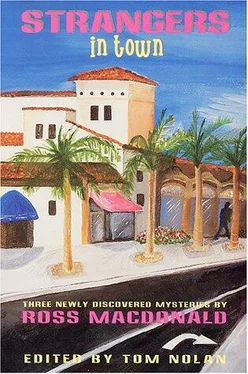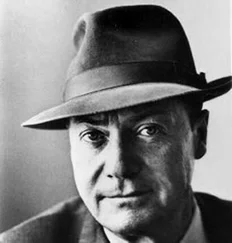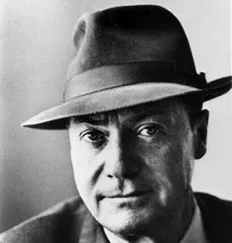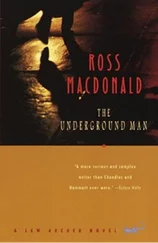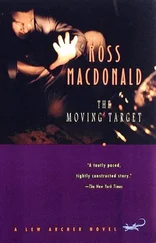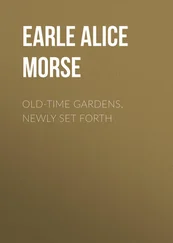"'It certainly contains the germ of a book'": Millar to Olding, August 7, 1964, Ober Archives, Princeton.
"'[The editor's] original request'": Millar to Olding, August 21, 1964, Ober Archives, Princeton.
"'Archer began as a child of the genre'": Charles Champlin, Los Angeles Times, July 4, 1975.
Death by water
Preface by Tom Nolan
"I can think of few more complex critical enterprises,"{" 'I can think of few more complex critical enterprises' ": Macdonald, "Down These Streets a Mean Man Must Go," Antaeus, Spring/Summer 1977; reprinted in Self-Portrait: Ceaselessly Into The Past (Capra Press, 1981).} wrote Ross Macdonald, "than disentangling the mind and life of a first-person detective story writer from the mask of his detective-narrator."
In the case of Macdonald and his protagonist Lew Archer, the enterprise would prove especially rewarding; for Ross Macdonald's fiction was tied by innumerable threads to the life of Kenneth Millar.
The author's practice of weaving fact into fiction began early — as early as this pre-Archer private-eye tale from 1945. "Death by Water" swims with references to the 29-year-old Ken Millar's past and present, as well as with hints of books and events to come{"'hints of books and events to come'": A "long, long circle" of the sort Millar savored in life, and Macdonald traced in fiction, can be drawn from the author's first private-eye story to his last p.i. novel thirty years later. Compare the death of Henry Ralston to Jacob Whitmore's in Macdonald's The Blue Hammer (Knopf, 1976): "Jacob Whitmore… wasn't drowned in fresh water… [He was] drowned in somebody's bathtub and chucked into the ocean afterwards."}.
The Valeria Pueblo, with its bungalow cottages and live orchestra, is very like hotels where Ken and Margaret Millar stayed during the war. One of the tunes its musicians play, "In a Little Spanish Town," was a hit in the late 1920s, when 12-year-old Kenneth Millar lived in Winnipeg with his aunt and uncle, a man who kept a heavy handgun in the glovebox of his Packard. That man was a lifelong touchstone for Macdonald to the world of crime — as was this romantic old tune, heard in more than one Archer novel.
Another leitmotif throughout the Archer series is the detective's finely-tuned moral sense. His young predecessor Rogers also seems capable of precise ethical judgments.
Rogers agrees for instance that a fortune gained perhaps through duplicity has nonetheless been put to good use — for, as he's told, "It kept a sick woman in comfort and brought up a fatherless boy." (Here's another link to the story's author, who grew up virtually fatherless.) Yet Rogers knows the difference between good motives and evil acts. And, like the later Archer, he's as concerned with why such acts are done as with who did them. "The trouble's all over," Rogers says once the corpse is found. "I'm just trying to understand it."
The offhand remarks near the start of the story, then, about motives that fuel crime, lie at the heart of the matter. (Since they also plant clues to solving the mystery, they serve double-duty: another hallmark of Macdonald's technique.)
Note the difference between Rogers and his hotel-detective colleague, who gets up and leaves when the talk turns serious. Incurious of cause, Al Sablacan may someday feel its effect. If he so allows, he might become like Otto Sipe, the corrupt house dick in Macdonald's The Far Side of the Dollar (1964): living in the ruin of the once-grand Barcelona Hotel, where the bright dreams of 1945 have turned to dust, and the only guests are ghosts.
He was old, but he didn't look as if he were about to die. For a man of his age, which couldn't have been less than seventy, he was doing very well for himself. He was sitting at the bar buying drinks for three young sailors, and he was the life of the party in more than the financial sense. In the hour or so that I had been watching him, he must have had at least five martinis, and it was long past dinner time.
"The old man can carry his liquor," I said to Al.
"Mr. Ralston you mean? He's in here every night from eight to midnight, and it never seems to get him down. Of course some nights he gets too much, and I have to take him home and put him to bed. But next day he's bright as ever."
"He lives in the hotel, eh?"
Al Sablacan was the hotel detective of the Valeria Pueblo, which charged ten dollars a day and up and, unlike many Los Angeles hotels, was worth it. Until a couple of years ago, he had been a private detective, like me, but he had finally succumbed to varicose veins and the promise of security in his old age.
"He's our oldest inhabitant," Al said. "He's got a bungalow over near the swimming pool. Been there about ten years, I guess, him and his wife."
"He doesn't act married."
Mr. Ralston had left the bar and was leaning on the grand piano watching a dark Spanish-looking girl who strummed a guitar and sang pseudo-Latin songs in a sweet soprano. She was making eyes at Mr. Ralston in an exaggerated way which was intended to indicate that she was humoring the old man. Mr. Ralston was making faces at her, as if to express passionate delight.
"You show them, Mr. Ralston," one of the sailors said from the bar. "There's life in the old boy yet."
"Most assuredly," said Mr. Ralston, in rich and gracious tones. He gave a dollar to the singer, and she began to play "The Isle of Capri." Mr. Ralston danced in a small circle between the bar and the piano, making expansively romantic gestures. "Most assuredly," he repeated, with a winning smile which made everyone in the bar smile with him. "I am a little old dried up man, but I have a youthful heart."
"Isn't he a card?" Al said to me. "His wife's an invalid, and he must do a lot of worrying about her, but you'd never know it. He's a card."
There was a recess in the music, and Mr. Ralston approached our table on light feet and with a glowing face. "And how are you this evening?" he said to Al in tones of cultivated solicitude. "I don't believe I've met your friend. I do hope you'll overlook the absence of a tie. I neglected to put one on after dinner. I don't know what I was thinking of." He gave a little laugh of indulgence at his boyish recklessness.
"Joe Rogers, Mr. Ralston," Al said. "Joe's a private detective. We used to work together."
"How utterly fascinating," Mr. Ralston said. "Do you mind if I join you for a moment? I have some guests at the bar, but I can continue to act as host by remote control, so to speak." He ordered a round of drinks for us and the sailors at the bar. His martini disappeared like ether in air.
"I've often thought," he said to me, "that the life of a detective would be an intensely interesting one. I rather fancy myself as a student of human nature, but my studies have been somewhat academic, you might say. Isn't it true that one sees deepest into human nature in moments of strain, moments of crisis, the kind of moments that must be delightfully frequent in your own life, Mr. Rogers?"
"You see deep enough into certain aspects of human nature, I guess. Some of the things I've seen I'd just as soon forget."
"Such as?" said Mr. Ralston, his eyes bright with curiosity and alcohol.
"Hatred. Greed. Jealousy. The three emotions that cause most crime. Impersonal love of inflicting pain is a fourth."
"Your word 'impersonal' is interesting," Mr. Ralston said. "It implies a concept which has occurred to me, that sadism need not have a sexual content. Don't you think, though, that there may be a fifth possibility? Surely people have stolen, even killed, for love. Or would your definition of love exclude the more criminal passions?"
"This is where I came in," Al Sablacan said to me. "I've got to mosey around a bit, anyway, and see that everything's O.K."
Читать дальше
